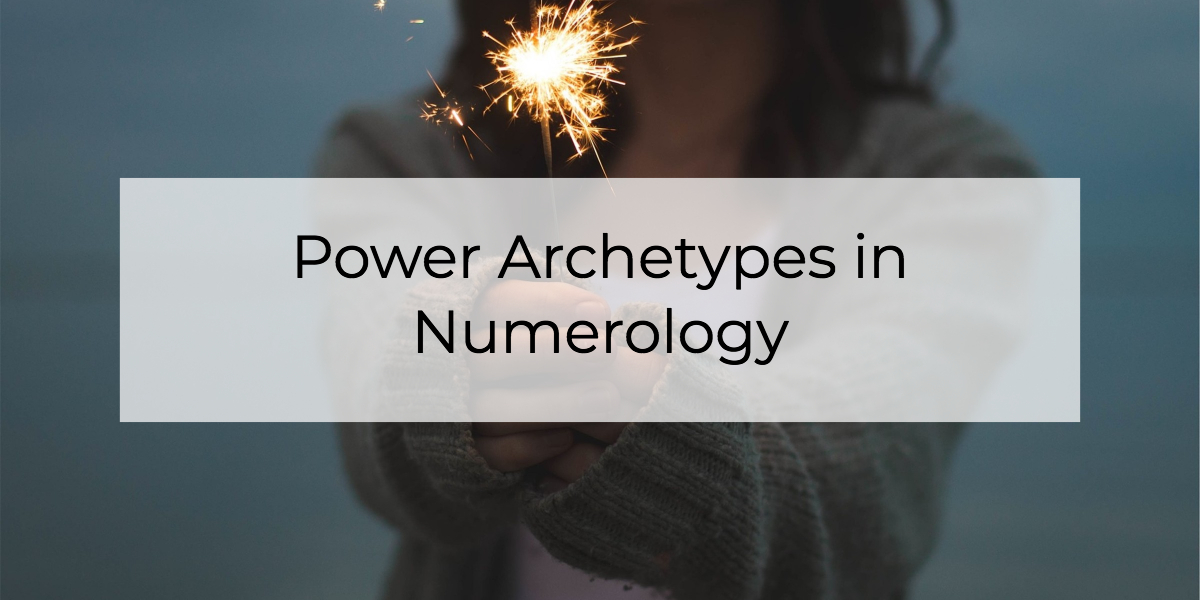
Two of the most powerful guiding questions you can ask yourself on your soul’s journey through life are: “Am I giving my power away?” and “Am I taking away someone else’s power?” Let’s face it – we have all done both, somewhere along the way.
From childhood on, we learn (often by example) about the proper and improper use of personal power. If all goes well, we learn early on how to balance our power, how to stand up for ourselves and take responsibility for our own behavior without either yielding control to someone else or attempting to wrest control from another.
In numerology, any of the single digits one through nine can contain victim-related energy. And remember, victim issues always include a perpetrator as well as a victim, which can create complexity, confusion or denial about what is really going on between people. Fortunately, numerology is well-suited to untangling these energies.
As a quick review from my previous columns, each of the nine single digits has its own character, its own essence. That character can be used intentionally or unintentionally, in either a positive or a negative, contracted way in everyday life. This dual potential for each number means that some numbers will have more of a tendency to slip into the role of victim, while other numbers will be more likely to carry the energy of the perpetrator.
How about an example? The number two in numerology is the number of the peacemaker, the mediator. A person with prominent two energy in his or her chart tends to be the one who makes sure that everyone else is happy. Twos are very sensitive, empathetic and usually see both sides of an issue. Because they can relate to how others might feel, and they want to make others happy, twos may tend to avoid saying how they feel, or they may be indecisive and leave the decisions to others. If this tendency becomes the default, the two may slide into victimhood, even if the other person had no conscious intention to become the perpetrator.
Another number that might suffer a similar recurring difficulty in life is the number six. Six is the number of love, service, nurturing and family, and people who are not conscious in working with this energy may tend to put their own needs last in a misguided attempt to be of service, resulting in victimization.
On the other hand, certain of the single digits tend to get controlling if they fall into a negative use of their energy. Maybe you can guess which ones?
Yes, the most obvious is the very first number – one; the initiator, the leader. If unaware or irresponsible with its energy, the one may become bossy, pushy, or unyielding – which will mean trouble for more sensitive twos and sixes. Another number with similar potential is the number eight. Eight represents the energy of personal power, accomplishment and achievement. Eight is often the number of the CEO. A person with eight energy is comfortable being in charge of others, whether in the workplace or at home. You can see how easy it might be for someone with prominent eight energy to play the victimizer, if they have not learned to work with their energy in a responsible way.
Whereas the one and eight might be more inclined to consciously victimize another if they are stuck in their dark side, the energy of certain other numbers may be more conducive to making unconscious victimizers. Both three and five energy can be very passionate, curious, enthusiastic – as well as scattered or irresponsible. If these numbers take over, get on a roll in their drive to explore (the five) or create (the three) and become oblivious to the needs of others around them, people with more passive number energies might fall into the role of victim when around them.
Now may be a good time for an important reminder, because at this point you might be wondering “Hmmmm, maybe some numbers should just avoid certain other numbers altogether!” Don’t go there.
First, remember that anyone can be working with a number’s energy in a variety of positive or negative ways, depending on their level of self-awareness. No number is inherently good or bad!
Even more important, remember that we are never represented by just one number, but a whole chart full of numbers. The energy of each number interacts with and influences the others in an ever-changing pattern. To return to a previous example, a person with prominent one energy might also have a prominent two in his or her chart, which may soften and complement the one leadership energy, creating an understanding leader rather than a victimizer. And our example of two, the peacemaker, might also have prominent three energy elsewhere in the chart, which can add a cheerful confidence that counterbalances any victim tendencies in the two.
Numerology charts can certainly be used to check potential compatibility or conflict between two people, but it takes practice and awareness of how the different number energies can interact. The most important thing, ultimately, is to know yourself, your own true nature, your tendencies – and take responsibility for your own growth. If you suspect the presence of undetected victim energy somewhere in your life, start with your own numbers for unique insight.